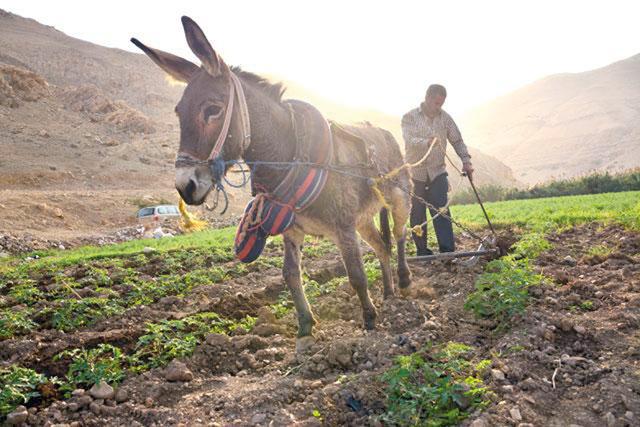You are here
As Jordan resumes trade with Syria, Cabinet approves measures to boost agricultural exports
By JT - Jan 11,2025 - Last updated at Jan 11,2025

Prime Minister Jafar Hassan chairs a Cabinet session on Saturday during which a number of decisions were made to support agricultural exports (Petra photo)
-Cabinet offers freight subsidies to help farmers, exporters compete in international markets
-Decision comes in response to challenges facing agricultural sector, including border closures, high air freight costs
-Subsidies expected to boost production, create jobs, reduce financial losses
-Minister of agriculture says Jordan ready to meet Syrian market demands of fruits, vegetables
AMMAN — The Cabinet on Saturday approved a series of measures to boost agricultural exports, offering freight subsidies to help farmers and exporters compete in international markets.
Under the plan, fresh fruit and vegetable exports will receive subsidies covering 50 per cent of air freight costs and 25per cent of sea freight costs. In addition, lemon exporters will benefit from a direct subsidy of JD50 per tonne, with a total export limit of 20,000 tonnes.
These decisions come in response to challenges facing the agricultural sector, including disruptions caused by regional instability, border closures and high air freight costs, according to the Jordan News Agency, Petra.
The measures also aim to address surplus production of certain crops during peak harvesting periods, which has put pressure on local markets.
The subsidies will be funded by the Agricultural Risk Management Fund, with hopes that the support will improve the global competitiveness of Jordanian agricultural products, increase exports and generate foreign exchange earnings.
The initiative is also expected to boost production, create jobs and reduce financial losses for farmers by expanding market opportunities.
Minister of Agriculture Khaled Huneifat announced the resumption of fruit and vegetable exports to Syria, marking a significant step forward after disruption caused by the recent deployments in Syria.
The first shipments were sent on Saturday from Al Ardah Central Market, according to the Jordan News Agency, Petra.
The minister stressed Jordan's readiness to meet Syrian market demands, especially for winter crops produced in the Jordan Valley. He also stressed Jordan's willingness to share its advanced agricultural expertise, including modern water-saving technologies, with neighbouring countries, Petra said.
The reopening of the Syrian market is expected to benefit Jordanian farmers by providing new export opportunities. It also has the potential to open pathways for Jordanian products to reach European markets through Syria, according to Petra.
The Council of Ministers gave initial approval to the 2024 Staffing Bylaw for Ministries and Government Entities and referred it to the Legal Committee of the Legislative and Opinion Bureau for further review and finalisation.
The bylaw outlines the organisational structure for various government sectors, detailing the number of positions, job titles and corresponding budgets as stipulated in the General Budget Law.
A total of 7,732 new positions will be created across the government, with 3,000 allocated to the Ministry of Education, 2,000 to the Ministry of Health and 2,732 to other ministries, departments and government units.
The Cabinet also approved amendments to the Public Sector Human Resources Management Bylaw for 2025 aimed at improving the performance of the public sector to better meet the needs of citizens.
One of the most notable changes is the extension of unpaid leave provisions for employees with five or more years of service. The new bylaw allows unpaid leave under certain conditions, such as to accompany a spouse abroad for work or study, to pursue further education, or to work under a valid contract.
The length of leave varies, with up to five years granted for specific cases such as study or accompanying a spouse abroad, and one to two years for work or training within Jordan.
The total duration of unpaid leave cannot exceed five years, except for exceptional care leave.
Related Articles
AMMAN — A recent decision to exempt agricultural exports via air cargo from fees will support the sector and enhance the competitiveness of
AMMAN — The Ministry of Agriculture and the Jordan Enterprise Development Corporation announced a 50 per cent subsidy on transport costs for
AMMAN — The overall difficult situation in the Kingdom, coupled with low demand for fruit and vegetables, put additional strain on Jordan Va













